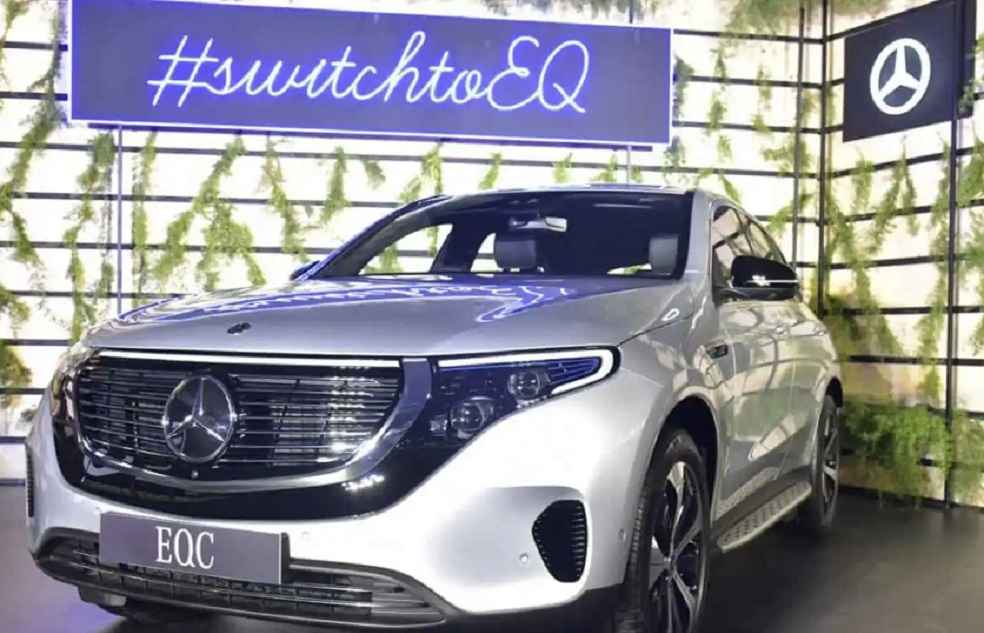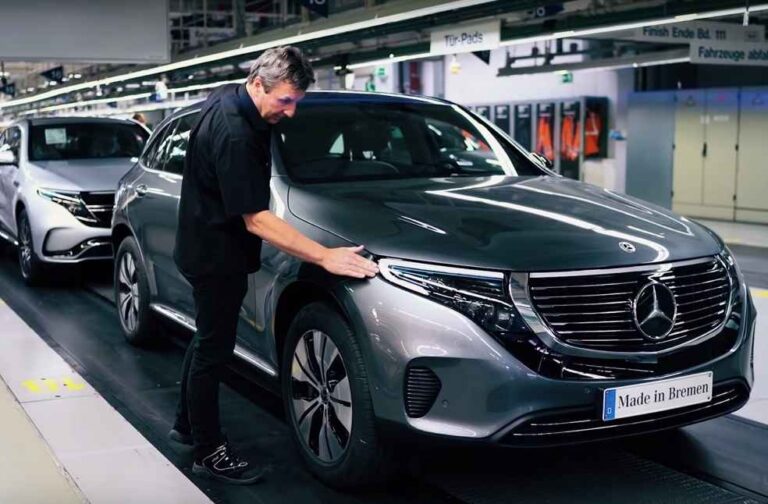Mercedes-Benz, the storied German automaker, has made a bold announcement amidst a shifting tide in the U.S. luxury vehicle market. The company has declared its ambition to become the “most desirable electric vehicle luxury brand”, as it pivots to a full electric fleet by 2030, according to Dimitris Psillakis, president and CEO of Mercedes-Benz North America.
Mercedes has witnessed a slump in its U.S. luxury market share, as consumers increasingly opt for electric vehicles (EVs) from Tesla. To reclaim its leadership position, Mercedes is building its own charging network and introducing Level 3 autonomous driving technology in its vehicles, following Tesla’s successful model.
Psillakis, who is spearheading Mercedes’ aggressive electrification campaign, states, “We don’t see Tesla as a luxury competitor … we see Tesla as a disruptor in the automotive sector, especially when it comes to electric vehicles.”

The automaker’s strategy appears to be yielding results; the company reported a 251% increase in EV sales in the first quarter of 2023 compared to the same period the prior year. Electric vehicles now account for 12% of the company’s U.S. sales.
However, Jessica Caldwell, executive director of insights at Edmunds, highlights that charging infrastructure remains a significant hurdle for EV adoption. “Charging is still a big roadblock for customers,” she says, praising Mercedes’ approach to building its own charging network as a smart, albeit expensive, marketing move.
Mercedes’ charging network, launching initially in the U.S. and Canada and open to non-Mercedes models, could help alleviate the nationwide EV charging conundrum.
Tony Quiroga, editor-in-chief of Car and Driver, believes that while Tesla has won over a dedicated fan base with its supercharger network and long-range models, Mercedes is closing the gap. “Mercedes doesn’t want to take a backseat to Tesla,” he explains, asserting that “A charging network can be a big win for Mercedes.”

Another feather in Mercedes’ cap is its recent autonomous driving certification from Nevada regulators. “Drive Pilot”, included in 2024 S-Class and EQS models, is the only SEA Level 3 automated driving system approved by lawmakers and is reportedly more advanced than Tesla’s Autopilot feature.
Despite the electric focus, Mercedes remains committed to its gas-powered SUVs and high-performance AMG models. The company continues to unveil new internal combustion vehicles, like the updated E-Class midsize sedan and the plug-in hybrid GLE 450e 4MATIC SUV. The new 2024 GLS model range will arrive in U.S. dealerships later this year.
According to Robby Degraff, an analyst at AutoPacific, Mercedes is doing a commendable job of balancing both aspects of its business. He states, “Mercedes-Benz has been able to crank out seriously eye-watering performance just by tapping into mild hybridization and plug-in hybrids.”
Ultimately, Mercedes’ ambitious plan to rival Tesla marks a significant shift in the luxury automotive industry. As EV adoption continues to grow, the race is on to provide consumers with the best combination of luxury, performance, and sustainability.
DON’T MISS: Resilient Supply Chains Fuel Sustainable Growth in Automotive Industry





